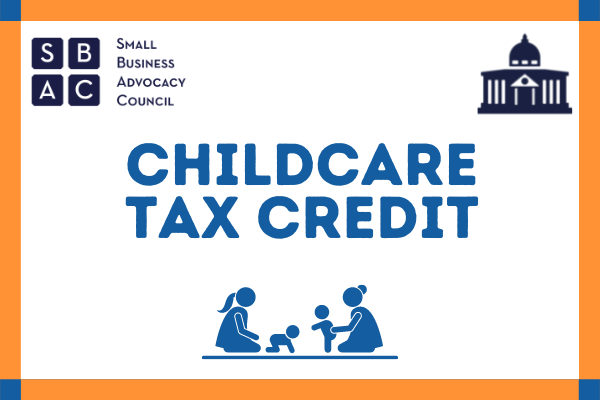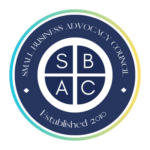
One issue that has lead many to put off re-entering the workforce from the pandemic fallout is the cost and difficulty in terms of finding affordable and quality childcare. The SBAC has determined it is such a significant issue that it has been added to our agenda for the 2022 Spring Session.
The childcare tax credit will provide working families resources to offset the costs associated with childcare. To be eligible, households must jointly earn an annual income below $75,000 and have at least one child under the age of 17. Taxpayers that file individually must earn less than $45,000 and have one child under the age of 17.
Under this program, taxpayers shall receive a $1500 tax credit for the first child under age 17. An additional $500 will be allocated to each additional child under the age of 17 with a max payment of $2500 per family. This credit is intended to be used to offset the costs associated with childcare.
The program will be capped at $100,000,000 absent further appropriations. This tax credit will sunset in 2025 unless extended by the legislature.
Program Details:
- Tax credits for eligible working families to offset the costs of childcare
- Eligible families must earn:
- $75,000 or less filing jointly
- $45,000 or less filing individually
- Eligible families must also have at least one child under the age of 17
- Tax credit of $1500 for the first child under age 17
- $500 increase for each additional child under age 17
- The maximum allowable tax credit per family is $2500
- Program capped at $100,000,000
- Program to sunset in 2025
- Eligible families must earn:
Byline Bank Recognizes Small Business Saturday with Small Business Advocacy Council Contribution
Byline Bank Recognizes Small Business Saturday with Small Business Advocacy Council Contribution CHICAGO, IL (November 2021) – This Small Business Saturday, November 27, Byline Bank, Illinois’ top Small Business Administration lender, is recognizing the work of the Small Business Advocacy Council (SBAC) of Illinois with a $5,000 sponsorship contribution. The SBAC is a nonpartisan member-driven…
Funding For Local Chambers of Commerce
HB4993 -> 1 Pager & Endorsements Chamber Relief Grant Program Local chambers of commerce provide important support and services to small businesses. They connect small businesses to potential customers and play a pivotal role in fostering commerce in local communities. However, many chambers have been devastated by the pandemic. For that reason, we are asking…
Laws You Should Know About
Baking Good Legislation On August 27, Governor Pritzker signed into law the Home-to-Market Act. The Home-to-Market Act allows producers of home-based food products to sell their goods directly to customers. This new law goes into effect on January 1, 2022. This will foster the growth of home-based entrepreneurs, known as the cottage food businesses. Prior…










